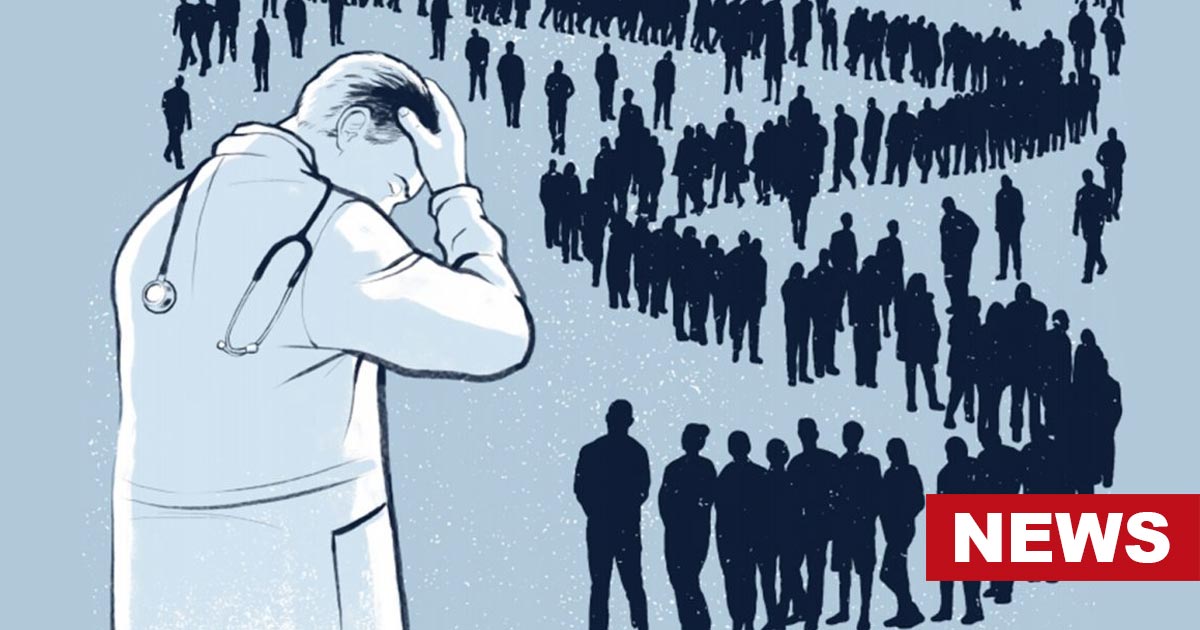The medical profession is a noble but demanding profession requiring that doctors manage stress on a daily basis. The demanding work hours spent in the operating room and the constant pressure to perform can profoundly impact even the most resilient individuals within the healthcare industry.
In fact, a study published in Healthcare highlighted the link between burnout and doctors, stating that a staggering 43% of the healthcare force suffer from physical and emotional exhaustion. Burnout and untreated mental stress in doctors make them more prone to making poor decisions, displaying a hostile attitude towards patients, committing medical errors, and encountering challenges in their relationships with colleagues.
Furthermore, burnout significantly raises the risk of developing depression, anxiety, sleep disorders, fatigue, substance abuse, marital problems, early retirement, and, tragically, even suicide.
While the infrastructure, research, and tools are essential foundations of the industry, the accessibility and availability of doctors ultimately determine its success.
On the occasion of National Doctor’s Day, 2023, in an insightful India Today interview, several doctors talked about mental health challenges and priorities, as well as self-care strategies to maintain sound mental wellness in a demanding profession.
One of the crucial aspects to deal with stress among doctors is the establishment of boundaries between personal and professional life. Dr. Amit Deshpande, a health activist from Aurangabad, believed that dedicating time to hobbies is vital for maintaining a healthy mind.
He emphasized the importance of self-care through practices like maintaining a healthy lifestyle, regular exercise, and adequate sleep. Effective time management and task delegation were also strategies Dr. Deshpande employed to mitigate stress. Additionally, he noted that engaging in creative outlets such as writing or art can serve as emotional expressions and relieve stress for some doctors.
Dr. Deepak Kumar Mishra, an orthopaedic surgeon at Asian Hospital, highlighted how positive-minded company can help doctors cope with stress, anxiety, and work-related grief. Another technique he recommended for mental peace and relaxation was taking breaks to immerse oneself in nature, away from the distractions of the internet and excessive use of social media.
Experts also stress the importance of making a conscious effort to destress and decompress. Dr. Manisha Munemane, a gynaecologist at Surya Mother and Child Super Speciality Hospital, recommended that doctors tackle stress by engaging in activities outside of work that bring joy and relaxation.
Dr. Jyoti Bandi, Director at DYU Healthcare, shared her personal experience of struggling with stress during the early years of her career. However, she learned to find ways to destress over time, such as spending time with family, practicing yoga, and engaging in meaningful conversations with friends during non-working hours.
Dr. Bandi also emphasized the importance of seeking professional help and engaging in support groups when work begins to negatively impact personal life—underlining the need for a calm and peaceful mind to make accurate diagnoses. She also signaled out sleep as an important factor. Ideally, 8 hours of sleep is a significant step in how doctors manage stress at work.
Rashi Dhilla, a therapist, shed light on the often-neglected aspect of doctors’ mental health, considering their underpaid and overworked circumstances. She explained the concept of compassion fatigue, where healthcare professionals not only provide physical labor but also emotional support to families during their most vulnerable times.
This emotional labor, coupled with the responsibility of remaining empathetically present, can lead to feelings of hopelessness, irritability, self-blame, internalized trauma, and low self-esteem. If left unaddressed, compassion fatigue can cause chronic dissatisfaction with oneself and work. In this context, Dhilla recommended practicing mindfulness and yoga as effective methods to cultivate joy and inner calm.
The well-being of doctors plays a crucial role in the functioning of the healthcare industry. Therefore, it is imperative to acknowledge the importance of mental health and prioritize the implementation of effective strategies to manage stress and anxiety. By ensuring the overall welfare and performance of medical professionals, we can create a healthier and more sustainable healthcare system that benefits both doctors and patients alike.




























